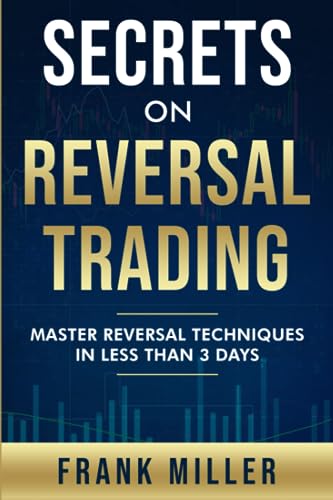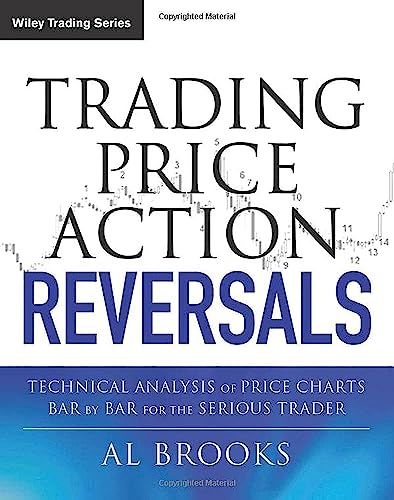- Miller, Frank (Author)
- English (Publication Language)
- 92 Pages - 11/01/2020 (Publication Date) - Independently published (Publisher)
Introduction
Reversal trading is a powerful strategy that can lead to instant gains in the financial markets. This approach involves identifying trend reversals and capitalizing on them to generate profits. In this article, we will explore the concept of reversal trading and discuss how it can be a lucrative opportunity for traders.
Understanding Reversal Trading
Reversal trading is based on the idea that trends in the market tend to reverse at certain points. By identifying these reversal points, traders can enter positions that align with the new trend direction, allowing them to profit from the subsequent price movements.
The Importance of Timing
Timing is crucial in reversal trading. Traders need to accurately identify when a trend is about to reverse to maximize their gains. This requires a combination of technical analysis tools, such as trend lines, support and resistance levels, and candlestick patterns. By analyzing these indicators, traders can pinpoint potential reversal points and execute their trades at the right time.
Key Indicators for Reversal Trading
Several indicators can help traders identify potential trend reversals. Some commonly used indicators include:
1. Moving Averages: Moving averages can help identify changes in trend direction by smoothing out price fluctuations. Traders often look for crossovers between different moving averages as a signal for a potential trend reversal.
2. RSI (Relative Strength Index): The RSI is a momentum oscillator that measures the speed and change of price movements. Oversold or overbought conditions indicated by the RSI can suggest an imminent trend reversal.
3. MACD (Moving Average Convergence Divergence): The MACD is a popular trend-following indicator that can also signal potential reversals. Traders often look for divergences between the MACD line and the price chart as a sign of a possible trend reversal.
Implementing a Reversal Trading Strategy
To implement a reversal trading strategy, traders need to follow a systematic approach. Here are some key steps to consider:
1. Identify the prevailing trend: Determine the current trend direction using technical analysis tools.
2. Look for potential reversal signals: Analyze price patterns, indicators, and other factors to identify potential reversal points.
3. Confirm the reversal signal: Wait for additional confirmation before entering a trade. This can be done by observing price action or using supplementary indicators.
4. Set stop-loss and take-profit levels: Define risk management parameters by setting stop-loss and take-profit levels to protect against potential losses and secure profits.
5. Monitor the trade: Once in a trade, closely monitor price movements and adjust stop-loss and take-profit levels if necessary.
Conclusion
Reversal trading can be a profitable strategy for traders looking to capitalize on trend reversals. By accurately identifying potential reversal points and implementing a systematic approach, traders can take advantage of instant gains in the financial markets. Remember to always conduct thorough analysis and practice proper risk management when engaging in reversal trading.
- Miller, Frank (Author)
- English (Publication Language)
- 92 Pages - 11/01/2020 (Publication Date) - Independently published (Publisher)
- Hardcover Book
- Brooks, Al (Author)
- English (Publication Language)
- 576 Pages - 01/24/2012 (Publication Date) - Wiley (Publisher)
- Pecaut, Rayner (Author)
- English (Publication Language)
- 71 Pages - 08/04/2022 (Publication Date) - Independently published (Publisher)
- Baker, Elliot (Author)
- English (Publication Language)
- 74 Pages - 06/15/2023 (Publication Date) - Independently published (Publisher)




